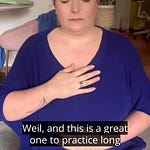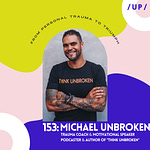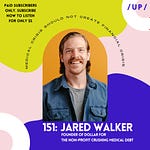In May 2016, Kelly Cervantes and her family received two life-changing pieces of news: her husband, Miguel, had landed the starring role of Alexander Hamilton in Hamilton: An American Musical in Chicago; and their then-7-months-old baby girl, Adelaide, was diagnosed with epilepsy — and eventually, infantile spasms — a severe form of childhood epilepsy. She transitioned from being the family’s primary bread-winner to a stay-at-home mom and full-time caregiver. Eventually, she found her voice and purpose with the non-profit Citizens United for Research in Epilepsy (CURE), where she is currently a board member. The family hoped that science would catch up to their daughter…but that was not meant to be. Adelaide passed away due to complications of an as-yet-still-unidentified neuro-degenerative disorder…5 days shy of her 4th birthday, and just weeks before Kelly was to receive a WEGO Health Award for her contributions to patient advocacy blogging for Inchstones. In a demonstration of incredible resilience, Kelly made a public promise to her daughter: even though Adelaide’s battle was over, she would continue to fight for families affected by medically-complex disorders. By organizing fundraising campaigns, speaking at epilepsy events across the country, continuing her writing, and hosting CURE’s podcast Seizing Life, she makes sure Adelaide’s struggles were not in vain, and keeps hope alive for all the Adelaides to come. Her hope is that in publicly sharing her family’s journey with epilepsy and the real-life moments that come with parenting and grieving a special needs child, other parents in similar situations will learn they are not alone.
Tune in as Kelly shares:
how Adelaide was initially diagnosed as an infant
that Adelaide’s longest stretch seizure-free was three months long
that in 30% of epilepsy patients, seizures are intractable despite intervention
that 1 in 26 people will be diagnosed with epilepsy in their lifetime
that while certain types of epilepsy can be rare, epilepsy itself is not
that there is a lot of stigma attached to the diagnosis — especially for adults
why NOT to call an ambulance when you see someone having a seizure
that epilepsy is always a symptom of something else: from TBI (traumatic brain injury) to genetics
the need for more funding in epilepsy research
how she acted as an advocate for her daughter
how she learned to speak medical jargon to be taken more seriously by Adelaide’s doctors
the importance of mental health support in the grief journey
that Adelaide also had MCAS (mast cell activation syndrome) alongside her epilepsy — and her epileptologists often saw these comorbidities occur together
why research gives her hope
the importance of documenting seizures with video














Share this post